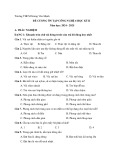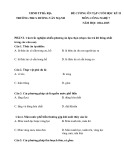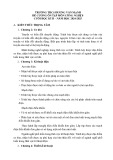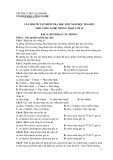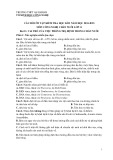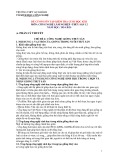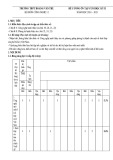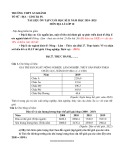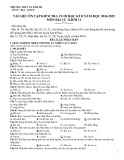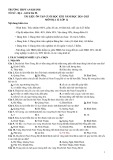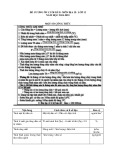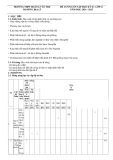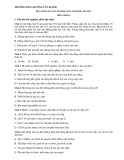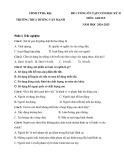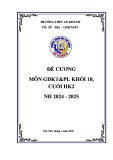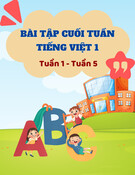
TRƯỜNG THCS LÊ QUANG CƯỜNG
REVISION FOR THE SECOND TERM EXAMINATION GRADE 8
SCHOOL YEAR: 2023 – 2024
I. VOCABULARY.
- Review units 7, 8, 9, 10, 11, 12
II. PRONUNCIATION.
-Sounds: /bl/ and /kl/
/bl/ : blue, blink, black, blossom, blur, blend ...
/kl/ : clock, bicycle, eclipse, circle, clause, classic ...
-Sounds: /sp/ and /st/
/sp/: speciality, spend, speak, sport, spare, spa …
/st/: costume, star, stand, west, stylist, test…
III. GRAMMAR.
1. Complex sentences with adverb clauses of time (Câu phức với mệnh đề trạng ngữ chỉ
thời gian)
-Câu phức là câu bao gồm 1 mệnh đề độc lập (independent clause) và ít nhất 1
mệnh đề phụ thuộc (dependent clause) liên kết với nhau.
Mệnh đề trạng ngữ chỉ thời gian (dependent clause ) bắt đầu bằng các liên từ:
-when (khi, vào lúc)
-while, as (trong khi)
-until, till (cho đến khi)
-as soon as, once (ngay khi)
-before, by the time (trước khi)
-after (sau khi) ...
Ex: I hope to pay him a visit before I go away .
When we were in New York , we saw several plays.
-As soon as you are ready , we shall go.
-We stayed there until it stopped raining .
-Mệnh đề trạng ngữ chỉ thời gian có thể đứng đầu hoặc cuối câu. Nếu mệnh đề trạng
ngữ chỉ thời gian đứng ở đầu câu sẽ ngăn cách với mệnh đề chính bằng dấu phẩy.
2. Adverbs of frequency (Trạng từ chỉ tần suất)
% Adverb of frequency Example
100 % Always I always go to school on time.
90% Usually We usually eat out on Sunday morning.
70% often/ frequently I often stay up late.
30% sometimes / occasionally My mother sometimes goes out with her friends.
10% seldom / rarely We seldom talk together.
0% Never I never go to school late.
2.1. Vị trí trạng từ chỉ tần suất.
Trạng từ chỉ tần suất thường xuất hiện ở 2 vị trí: trước động từ thường, sau động từ TO BE.
-Đứng sau động từ TO BE.
E.x: He is sometimes late for school.
1









